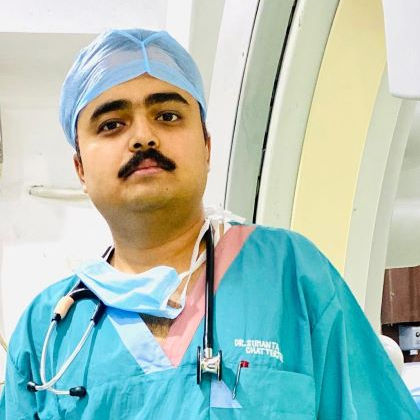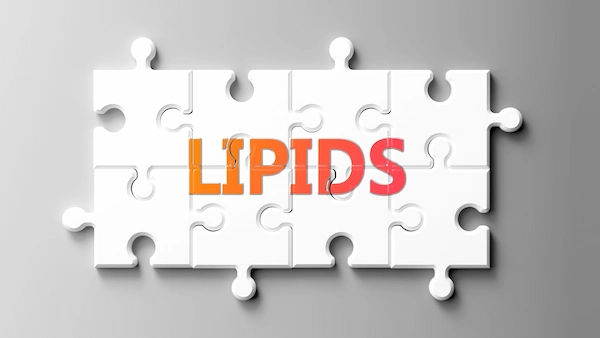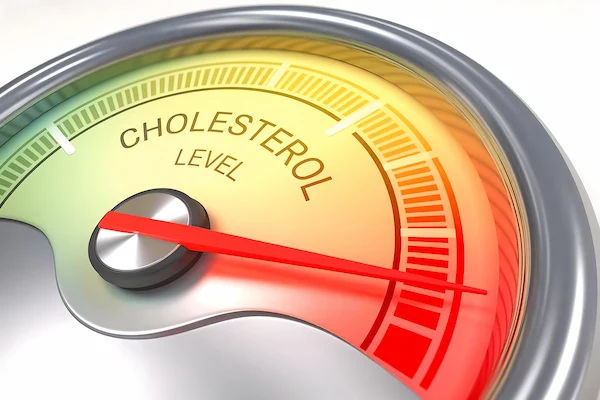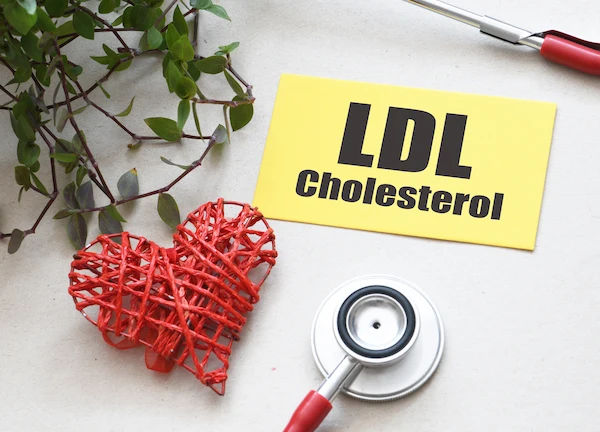Understanding Good and Bad Cholesterol
Understand the difference between good (HDL) and bad (LDL) cholesterol, their impact on heart health, causes of imbalance, ideal cholesterol levels, and effective ways to maintain healthy cholesterol levels through lifestyle changes and medical guidance.

Written by Dr. D Bhanu Prakash
Reviewed by Dr. Shaik Abdul Kalam MD (Physician)
Last updated on 25th Aug, 2025

Introduction
Cholesterol is a word we often hear, especially when talking about heart health. But what exactly is cholesterol, and why is it important to know the difference between "good" and "bad" cholesterol? If you're confused or worried about your cholesterol levels, this guide will help you understand the basics in a simple and friendly way.
What Is Cholesterol?
Cholesterol is a waxy, fat-like substance found in your blood. While it often gets a bad reputation, your body actually needs cholesterol to build healthy cells, produce hormones, and digest food. However, too much cholesterol, especially the wrong kind, can lead to serious health problems like heart disease and stroke.
Cholesterol travels through your bloodstream in tiny packages called lipoproteins. There are two main types:
1. Low-Density Lipoprotein (LDL) – "Bad" Cholesterol
2. High-Density Lipoprotein (HDL) – "Good" Cholesterol
Let’s break them down.
Consult a Top Heart Specialist for the best advice
Bad Cholesterol (LDL): The Silent Threat
LDL cholesterol is often called "bad" because when there’s too much of it in your blood, it can build up in the walls of your arteries (the blood vessels that carry oxygen-rich blood to your heart and body). Over time, this buildup forms plaque, which narrows and hardens your arteries, a condition called atherosclerosis.
Why Is High LDL Dangerous?
The health risks of high LDL are:
- Increases heart disease risk: Narrowed arteries make it harder for blood to flow, raising the risk of heart attacks.
- Leads to strokes: If a plaque ruptures, it can cause a blood clot that blocks blood flow to the brain.
- Causes peripheral artery disease (PAD): Reduced blood flow to the legs can cause pain and mobility issues.
What Causes High LDL?
High LDL is caused by:
- Eating too much saturated and trans fats (found in fried foods, processed snacks, and fatty meats).
- Lack of physical activity.
- Smoking and excessive alcohol.
- Genetics (some people naturally produce more LDL).
Good Cholesterol (HDL): The Protector
HDL cholesterol is called "good" because it helps remove LDL from your bloodstream and carries it back to the liver, where it’s broken down and removed from the body. Think of HDL as a cleanup crew that keeps your arteries clear.
Why Is HDL Important?
- HDL (good Cholesterol) plays a key role in heart health.
- Reduces plaque buildup: Higher HDL levels lower your risk of heart disease.
- Supports overall heart health: It helps maintain healthy blood vessels.
How Can You Increase HDL?
Effective ways to boost your HDL naturally:
- Exercise regularly: Even a 30-minute brisk walk daily can help.
- Eat healthy fats: Foods like olive oil, nuts, avocados, and fatty fish (salmon, mackerel) boost HDL.
- Quit smoking: Smoking lowers HDL levels.
- Maintain a healthy weight: Losing extra weight can improve HDL.
How to Know Your Cholesterol Levels?
The only way to know if your cholesterol levels are healthy is through a blood test called a lipid profile. This test measures:
- Total cholesterol (LDL + HDL + other lipids).
- LDL cholesterol (should be low).
- HDL cholesterol (should be high).
- Triglycerides (another type of fat that affects heart health).
Get Your Health Assessed
Ideal Cholesterol Levels (for Adults):
Recommended cholesterol levels for adults:
- Total cholesterol: Below 200 mg/dL
- LDL ("bad" cholesterol): Below 100 mg/dL (lower is better for high-risk patients).
- HDL ("good" cholesterol): Above 60 mg/dL (higher is better).
- Triglycerides: Below 150 mg/dL
If your numbers are outside these ranges, your doctor may suggest lifestyle changes or medication.
Simple Ways to Improve Your Cholesterol
Effective tips to boost your cholesterol health:
1. Eat Heart-Healthy Foods
- More fibre: Oats, beans, fruits, and vegetables help lower LDL.
- Healthy fats: Choose olive oil, nuts, seeds, and fish over butter and fried foods.
- Limit processed foods: Avoid packaged snacks, fast food, and sugary drinks.
2. Stay Active
- Aim for at least 150 minutes of moderate exercise per week (walking, cycling, swimming).
- Even small changes like taking the stairs or stretching daily help.
3. Quit Smoking & Limit Alcohol
- Smoking lowers HDL and damages blood vessels.
- Excessive alcohol raises triglycerides; stick to moderate drinking (1 drink/day for women, 2 for men).
4. Manage Weight & Stress
- Losing just 5-10% of body weight can improve cholesterol.
- Stress can affect eating habits; practice relaxation techniques like yoga or meditation.
When to See a Doctor?
If you:
- Have a family history of high cholesterol or heart disease.
- Experience symptoms like chest pain, shortness of breath, or leg pain while walking.
- Haven’t had a cholesterol check in over 5 years (or 1-2 years if you’re over 40).
It’s time to get tested! Early detection and management can prevent serious complications.
Conclusion
Taking control of your cholesterol today can lead to a healthier heart tomorrow. Stay informed, eat well, stay active, and get regular check-ups; your heart will thank you!
Consult a Top Heart Specialist for the best advice
Consult a Top Heart Specialist for the best advice

Dr. Tripti Deb
Cardiologist
40 Years • MBBS, MD, DM, FACC, FESC
Hyderabad
Apollo Hospitals Jubilee Hills, Hyderabad

Dr. Chandra Prakash Thakur
Cardiologist
5 Years • MBBS, MD ( Medicine), DM ( Cardiology)
Guwahati
Apollo Hospitals G S Road, Guwahati

Dr. Bhethala Sharan Prakash
General Physician/ Internal Medicine Specialist
5 Years • MBBS MD
Bengaluru
PRESTIGE SHANTHINIKETAN - SOCIETY CLINIC, Bengaluru
Dr. Mahendranath Subramani Prasad
Cardiologist
16 Years • MBBS,MS ,DNB, M.Ch. Cardiovascular and Thoracic Surgery(Cardiology)
Bengaluru
Apollo Clinic, Sarjapur Road, Bengaluru

Dr. Sumanta Chatterjee
Cardiologist
12 Years • MBBS,MD General Medicine,DM Cardiology
Kolkata
HealthYou Speciality Clinic & Diagnostics., Kolkata
(25+ Patients)
Consult a Top Heart Specialist for the best advice

Dr. Tripti Deb
Cardiologist
40 Years • MBBS, MD, DM, FACC, FESC
Hyderabad
Apollo Hospitals Jubilee Hills, Hyderabad

Dr. Chandra Prakash Thakur
Cardiologist
5 Years • MBBS, MD ( Medicine), DM ( Cardiology)
Guwahati
Apollo Hospitals G S Road, Guwahati

Dr. Bhethala Sharan Prakash
General Physician/ Internal Medicine Specialist
5 Years • MBBS MD
Bengaluru
PRESTIGE SHANTHINIKETAN - SOCIETY CLINIC, Bengaluru
Dr. Mahendranath Subramani Prasad
Cardiologist
16 Years • MBBS,MS ,DNB, M.Ch. Cardiovascular and Thoracic Surgery(Cardiology)
Bengaluru
Apollo Clinic, Sarjapur Road, Bengaluru

Dr. Sumanta Chatterjee
Cardiologist
12 Years • MBBS,MD General Medicine,DM Cardiology
Kolkata
HealthYou Speciality Clinic & Diagnostics., Kolkata
(25+ Patients)




